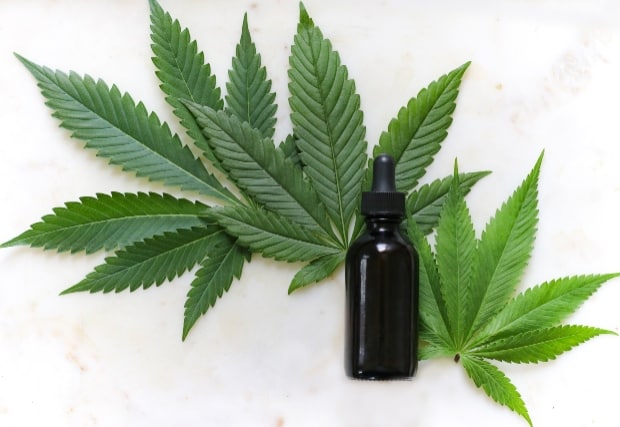May 2022 Update: The following post is still relevant and has information that is relevant to all employers who want or need to maintain a drug-free workplace.
As various states legalize marijuana, the employee drug testing landscape is changing quickly. Recent legislation in many states and cities limits an employer’s right to include marijuana in a drug test, including New York City.
Employers, parents and law enforcement are understandably concerned.
With clients all over the country, we follow closely the dizzying number of developments all over the U.S. Here in Illinois (our office is just outside Chicago), marijuana is a hot topic indeed, and the Illinois marijuana law is one to keep an eye on, as it may set precedents for other state legalization efforts.
Illinois is the first state to legalize marijuana through the legislative process. That is, it was not through the actions of voters.
Decriminalization versus Legalization. This is a distinction many people have not considered.
Decriminalization simply removes or reduces criminal penalties for possession, with the intent of freeing up the court systems and prison space. Legalization means that marijuana can be sold legally (and usually taxed).
In states with legalized recreational marijuana, will you see it on every corner? Many people think not. But consider that in Colorado, there are more marijuana stores than there are Starbucks, McDonald’s and Subway combined.
Same in Oregon.
On every corner? No. But they sure aren’t hard to find.
A few things to understand about marijuana
In states with restrictions on pre-employment drug testing for marijuana, a positive pre-employment test for marijuana merely confirms off-duty legal behavior.
THC, the active ingredient in marijuana thought to be responsible for its psychoactive effects, can be detected in urine for days or even weeks after use. In hair drug testing, the detection window is even longer.
Calling it cannabis does not change what it is. Marijuana is still a Schedule I drug as defined by the DEA. Marijuana use has been demonstrated to adversely affect workplace safety, productivity, driver safety, cognitive function, motivation, and even the size of the brains of growing teenagers.
If adults want to put it into their bodies, they are legally allowed to do so in many states. For this reason, employers need to understand how to manage the risks associated with employing marijuana users.
Business as usual for federally regulated employers
Regardless of the many differences among the various state legalization laws, one thing remains consistent. Employees who are required to drug test under U.S. Department of Transportation and other federal regulations will continue to be tested for marijuana. The DOT has made it clear that there are no exceptions for marijuana. Safety is the priority.
DOT-regulated testing regulations cover employees in such professions as bus drivers, truck drivers, airline industry, public transit, and oil and gas workers.
For everyone else, the rules can vary by state (and even city). Business Insider is one of many sites that publishes a list of all the states where marijuana is legal. If you are an employer who has employees in more than one state, you’ll need to understand the laws for each.
Safety carve-out
Most states with legal marijuana either allow employers to test for marijuana as before, or they include a safety carve-out. In NYC, for example, the THC testing prohibition includes “exemptions for certain safety-sensitive industries, including law enforcement and construction, as well as jobs that require supervising children or medical patients.” Employers are responsible for safety in the workplace and lawmakers recognize how important drug testing is to a safe workplace. Nevada’s law is similar.
 Illinois is the outlier.
Illinois is the outlier.
When the legislature created and approved the Illinois Cannabis Regulation and Tax Act, they also modified the Right to Privacy in the Workplace Act. This is the thing that has employers very, very concerned. There is no specific carve-out for safety-sensitive workers. It would not be a stretch to expect this type of legislation to find its way into other state legalization laws as well. Relevant excerpts follow.
Right to Privacy in the Workplace Act
(a) Except as otherwise specifically provided by law, including Section 10-50 of the Cannabis Regulation and Tax Act, and except as provided in subsections (b) and (c) of this Section, it shall be unlawful for an employer to refuse to hire or to discharge any individual, or otherwise disadvantage any individual, with respect to compensation, terms, conditions or privileges of employment because the individual uses lawful products off the premises of the employer during nonworking and non-call hours. As used in this Section, “lawful products” means products that are legal under state law. For purposes of this Section, an employee is deemed on-call when the employee is scheduled with at least 24 hours’ notice by his or her employer to be on standby or otherwise responsible for performing tasks related to his or her employment either at the employer’s premises or other previously designated location by his or her employer or supervisor to perform a work-related task.
Cannabis Regulation and Tax Act
Section 10-50. Employment; employer liability.
(a) Nothing in this Act shall prohibit an employer from adopting reasonable zero tolerance or drug free workplace policies, or employment policies concerning drug testing, smoking, consumption, storage, or use of cannabis in the workplace or while on call provided that the policy is applied in a nondiscriminatory manner.
(b) Nothing in this Act shall require an employer to permit an employee to be under the influence of or use cannabis in the employer’s workplace or while performing the employee’s job duties or while on call.
(c) Nothing in this Act shall limit or prevent an employer from disciplining an employee or terminating employment of an employee for violating an employer’s employment policies or workplace drug policy.
 What do employment attorneys advise? And what are employers doing?
What do employment attorneys advise? And what are employers doing?
We have been asking. The following are remarks and links are from people we know and trust. All are intelligent, thoughtful and informed employer-side employment attorneys.
On a recent webinar, Alan M. Kaplan, an Illinois “Super Lawyer” and Principal at Masuda, Funai, Eifert & Mitchell, Ltd. stated, “We are advising our non-regulated clients to remove marijuana from the pre-employment and random testing panels.” In the webinar, Kaplan stated that one could “make a reasonable argument that employers are open to lawsuit by prospective candidates and employees for termination of employment for a failed drug test due to cannabis because of the protections under the Workplace Privacy Act,” and “Although legislative intent appears to have protection for employers in Section 10-50 of the Illinois Act, this is not yet clear and creates a clear risk to Illinois employers.”
Brian Schwartz, a management-side labor and employment attorney with Klein Paull Holleb & Jacobs, Ltd. agrees: “Most of my clients are eliminating pre-employment and random testing for marijuana. Reasonable suspicion or post-accident testing must be based on the observance of “articulable symptoms” of impairment …. The key issue is whether an employee is impaired rather than merely testing positive, which is not a basis alone to discipline or terminate as marijuana is a lawful product under Illinois law.”
UPDATE FROM BRIAN SCHWARTZ (after the 12/6/19 Amendment): [G]oing forward, generally speaking, employers can still engage in pre-employment and random testing for marijuana, provided the testing is non-discriminatory and pursuant to reasonable drug testing policies.
Sheryl Jaffee Halpern, Principal at Much, authored her firm’s position on the new marijuana law, which provides some hope for employers who are struggling with this issue.
“The statute expressly allows employers to adopt ‘reasonable zero tolerance’ or drug-free workplace policies. At first blush, ‘reasonable’ doesn’t seem to make much sense when juxtaposed against ‘zero tolerance’ or ‘drug free.’ What I suspect this is intended to mean is that employers can put those policies in place, but they should be applied reasonably. For example, if an employee with a physical or mental disability tests positive for a drug that is used to alleviate the symptoms of that disability, termination of employment might not be construed as reasonable, particularly where the employee is not in a position where use of that drug would pose a risk of injury to the employee or others. “
As to whether employers should stop testing, Halpern believes that certain employers can (and perhaps should) continue to test for marijuana, specifically those with employees in safety-sensitive positions, federal government contractors, employers that receive Medicare/Medicaid payments (such as medical practices and skilled nursing facilities) and employers with employees who work with vulnerable members of society, including children, the elderly, and the infirm.
Lori Goldstein of Law Office of Lori A. Goldstein, LLC has clients on both the employee and employer sides and has the perspective of both in mind.” Companies have to balance the broad federal prohibition with the state-regulated permission, as well as consider the often conflicting Illinois privacy statute (and other privacy issues involved with drug testing), “zero tolerance” policies, reasonable accommodations for disabilities, and the effect on workers comp and unemployment comp claims.”
Laner Muchin Partner Peter Gillespie is firmly recommending that employers remove marijuana from pre-employment and random drug test panels, though, he says, not all of his clients are heeding his advice.
In fact, a number of the attorneys we spoke with said the same thing.
Lastly, attorney and industry expert Bill Judge has weighed in on this. He spends considerable time dissecting the language of the law, and it’s best to read it all in context.
Is it all clear now?
Of course it isn’t. We all know it’s going to be up to the courts to sort it out.
 What to do now, regardless of what state you are in
What to do now, regardless of what state you are in
Decide if safety is the most important issue. Many employers will continue to test for marijuana because they view zero tolerance as essential to maintaining a safe workplace, and they are willing to risk challenges from job applicants and employees.
If you prefer not to risk a challenge from employee or applicant, and consider the safety risk to be less of a concern, you might consider the following:
- Remove marijuana from the pre-employment test. But include some additional drugs, including commonly abused prescription drugs like benzodiazepines and opioids. 41% of all positive drug tests are for drugs other than marijuana. InOut labs offers several drug test panels that do not include marijuana.
- Train your supervisors to recognize potential impairment and what to do when there is reasonable suspicion of a problem. Documented training records may help to support your decision to conduct reasonable suspicion testing.
- Consider lab-based oral fluid (saliva) drug testing for reasonable suspicion and post-accident testing. It has a shorter detection window for marijuana (24 hours) and can detect recent use.
- Revisit, revise or rewrite your substance abuse policy. “Zero tolerance” for positive marijuana tests is becoming less and less acceptable. You will need to understand the laws in each state where you have employees. There is a distinct difference between recreational marijuana and medical marijuana and your policy should deal with each differently.
Supervisor Training Information (live and web)
Set Up a Corporate Drug Testing Account (with or without THC)
Are you an employment attorney or HR expert? Please comment below.
InOut Labs is not a law firm. Nothing presented in this communication is intended or should be interpreted as legal advice. You should always seek the advice of your own legal counsel.

